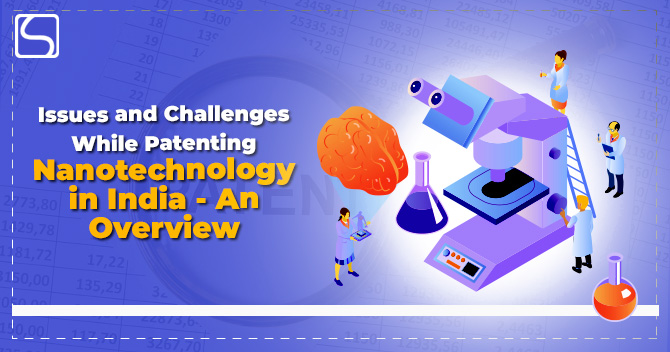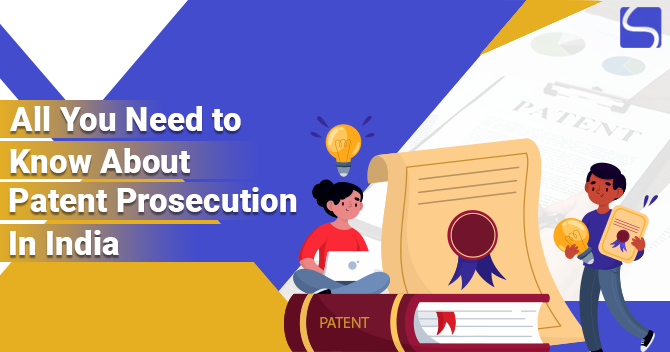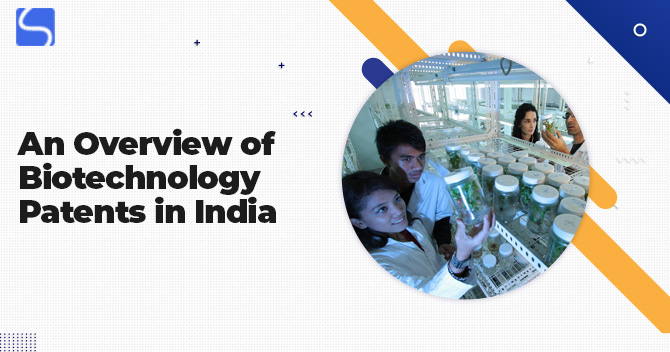Issues and Challenges While Patenting Nanotechnology in India – An Overview

Karan Singh | Updated: Mar 05, 2022 | Category: Patent
Basically, Nanotechnology is the design, production, characterisation, and application of structure, devices & systems by controlling size & shape at the nanoscale. In simple terms, it’s the engineering of matter at the scale of molecules & atoms where size is measured in nanometres. Nanotechnology is a huge field that comprises a range of technologies at the nanoscale like neuroscience, robotics, genomics, Information Technologies, pharmaceuticals, and biotechnology. In India, Nanotechnology holds significance, particularly in the Nano biotech and Nanomedicine segment. The beginning of Nanotechnology in India has hoisted a bunch of questions and challenges in terms of Intellectual Property (IP) protection. Hence, it’s vital to explore crucially whether the Indian Patent System presents a suitable environment for Patent protection in India. In this blog, we will discuss issues & challenges while Patenting Nanotechnology in India.
Table of Contents
Criteria for Patenting Nanotechnology Invention in India
Patenting Nanotechnology is not the same as that of other technologies. To get a Patent Registration in Nanotechnology required following requirements:
- The proposed invention should be original: Due to the multidisciplinary character of nanotechnology inventions determination of the uniqueness of a specific application is very complex and difficult.
- It should have an industrial application: The use of an invention may not always be recognised at the time of origin/there may be possibilities of the decline of its use. Sometimes Patentees in developing technology companies claim unbelievable uses of their Patents to get comprehensive protection. There is a risk that the Patent may be rejected due to insufficiency of utility.
- It should be non-obvious: As Nanotechnology[1] is fast-growing and covers rather an extensive range of scientific areas, the types of Patent applications for each invention are hypothetically unlimited. Because of the impact and the interdisciplinary character of this area, Nanotechnology inventions may be written across an extensive range of applications. It’s very hard to recognise the relevant prior art in emerging technology. In this context, there is also a supposed risk of overlapping Patents.
Issues Facing while Patenting Nanotechnology in India
One of the big concerns with Nanotechnology inventions is it being multidisciplinary in nature. Such a nature of Nanotechnology inventions poses various challenges for both the Courts and Patent Offices in determining the Patentability of Nanotechnology inventions. They are faced with the issues or problems of determining which context is suitable across many industries & disciplines and comprise all of them in decision making. Moreover, a Patentee and Patent Office are required to search for Prior Art not limited to one area but in a wide variety of areas.
Another major concern with these inventions is that the corresponding Patents bear comprehensive claims. In a situation like this, the Patentee tries to maximise the profit by preferring Patent claims which could cover as many applications & markets as possible. Due to the presence of a huge number of such Patents with broad and overlapping claims, the possibility of fragmentation of Patent landscape and Patent thickets arises. The extensive definition of Nanotechnology creates difficulties for both the Patent examiner and the inventor in categorising new inventions for Patent Office purposes.
As per Article 27(1) of TRIPS, an appropriate and enforceable Patent can only be attained on a certain invention if the claims are unique, non-obvious over the Prior Art and have industrial usage. But, Patenting Nanotechnology inventions is not the same as that of other technologies and how to anticipate a certain invention differs from country to country. In India, under Section 2(1) (j) of the Patent Act, 2005 describes an inventive step as a feature of an invention that comprises “technical advancement” as compared to the knowledge that makes the invention non-obvious to an individual skilled in the art.
Nano biotech inventions cause environmental damage and due to the high infusion ability of the nanoparticles further, the nanoparticles may get into the human bodies and may result in Nano-toxicity. Additional, as per Section 3(d), there is indistinctness in particle size to be considered patentable subject matter or not.
Challenges in Patenting Nanotechnology Invention in India
Under Indian Patent Regime, virtues of matter & other fundamental scientific discoveries are not eligible for Patent Registration. An initial challenge for Patent examination is to decide how to get a Patent that is derived from the discovery of intrinsic properties of materials. Only developing or increasing a smaller dimension or size of a recognised structure wouldn’t be considered to be Patentable unless it has extra uniqueness or utility.
What are the Consequences of Difficulty of Nanotechnology Patent?
In India, the problem or issue with Nanotechnology is that it’s an emerging technology and presents or shows a picture of potentials that are yet to be explored. Nanotech Patents may face the following difficulties is being granted:
- Issuance of Nanotechnology Patent regarding existing Prior Art that was overlooked at the time of Patent Examination;
- An inappropriate rejection of a Nanotechnology Patent application due to an examiner’s mistaken conclusion that the subject matter is not unique;
- Unlike the Nano categorisations developed in the European Union or the United States Patent Regime, the lack of a Nanotechnology Patent classification system in India makes Patent landscaping uncomfortable, which affects the Nanotechnology Patents’ future. Moreover, such challenges increase the load the examiner considering the Patent applications; the lack of skilled, qualified, and trained examiners may result in the granting of poor quality Patents;
- Issuance of an excessively broad Nanotechnology Patent that violates on earlier issued Patents and/or provides too much control over a specific swath of Nanotechnology, permitting the Patentees to eliminate competition unfairly.
Conclusion
Currently, the Indian Patents Act has no provision that even incidentally touches the area of nanotechnology. There have been no regulations or guidelines structured regarding regulating this technology through the TRIPS agreement, which specifically provides that IP protection should be extended to all areas of science so that it encourages more innovations & research.
Nanoparticles, due to their size, have proved to be more effective, water-soluble, target-specific, and steady tools in drug delivery as compared to the conventional routes of the Drug Administration. For many years pharmaceutical sciences have been using nanoparticles to lessen the toxicity and side effects of drugs. This technology increases issues that are in disagreement with IPRs protection and non-commercial laws. Due to the absence of consonant Patent Law provisions, Nanotechnology will encounter challenges concerning the criteria of uniqueness, being capable of industrial application and eligibility of subject matter under Section 3 of the Indian Patents Act, 1970.














